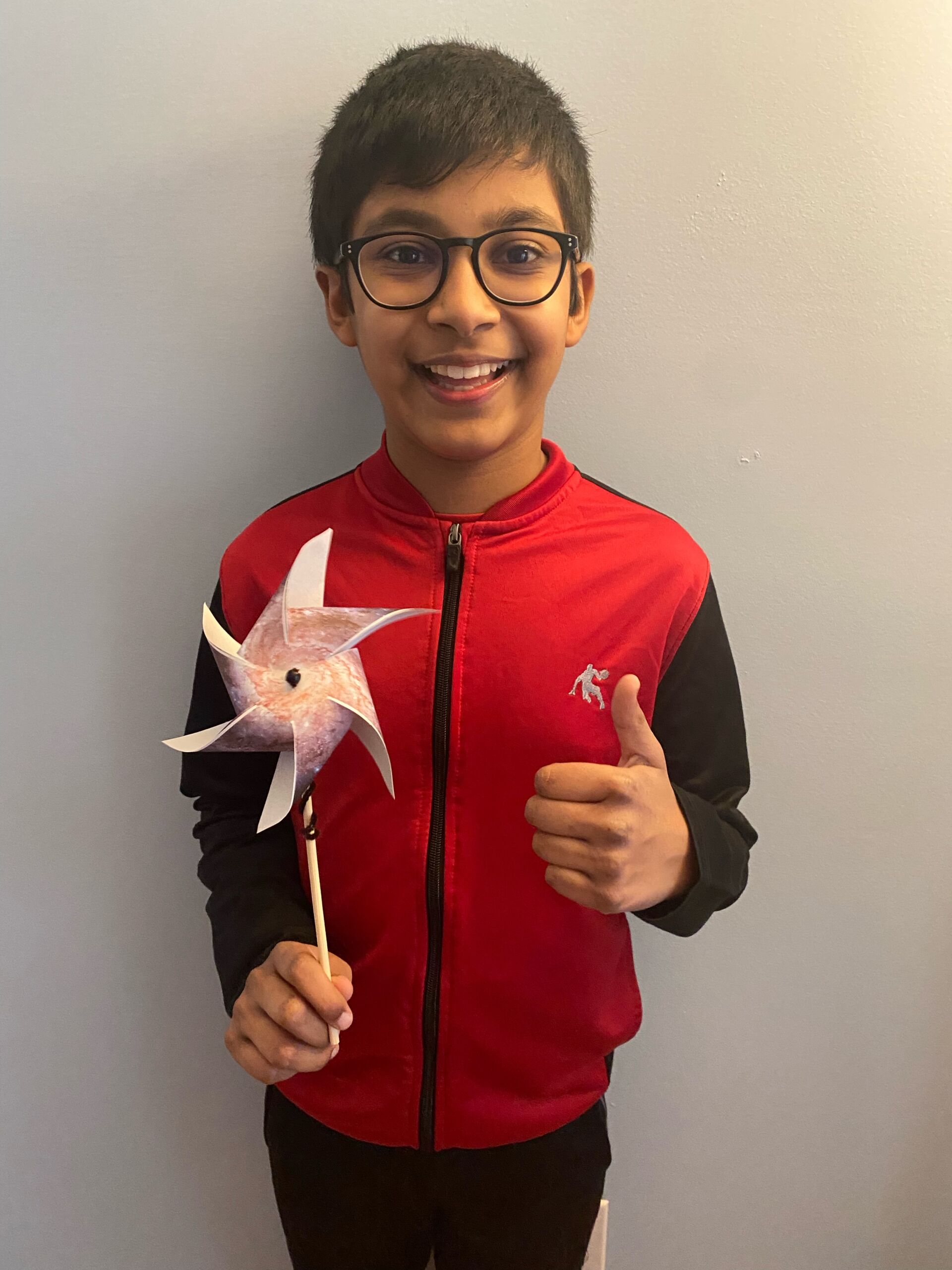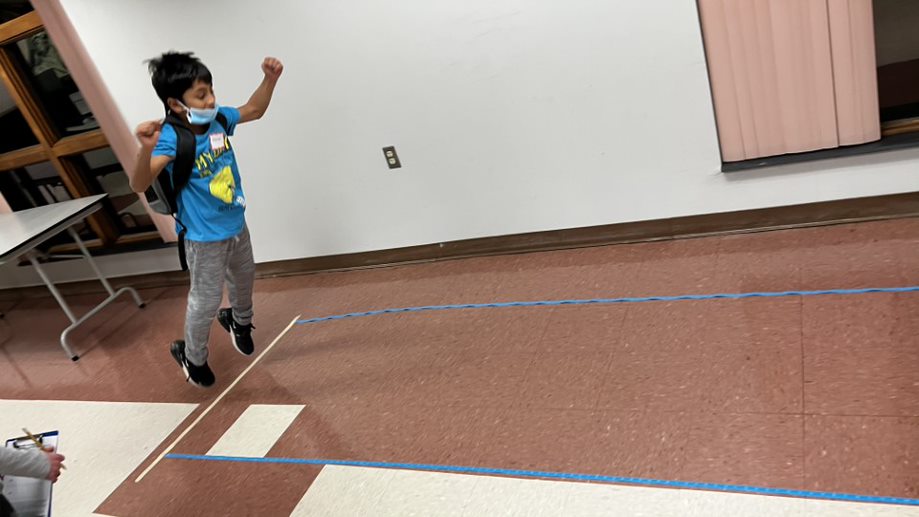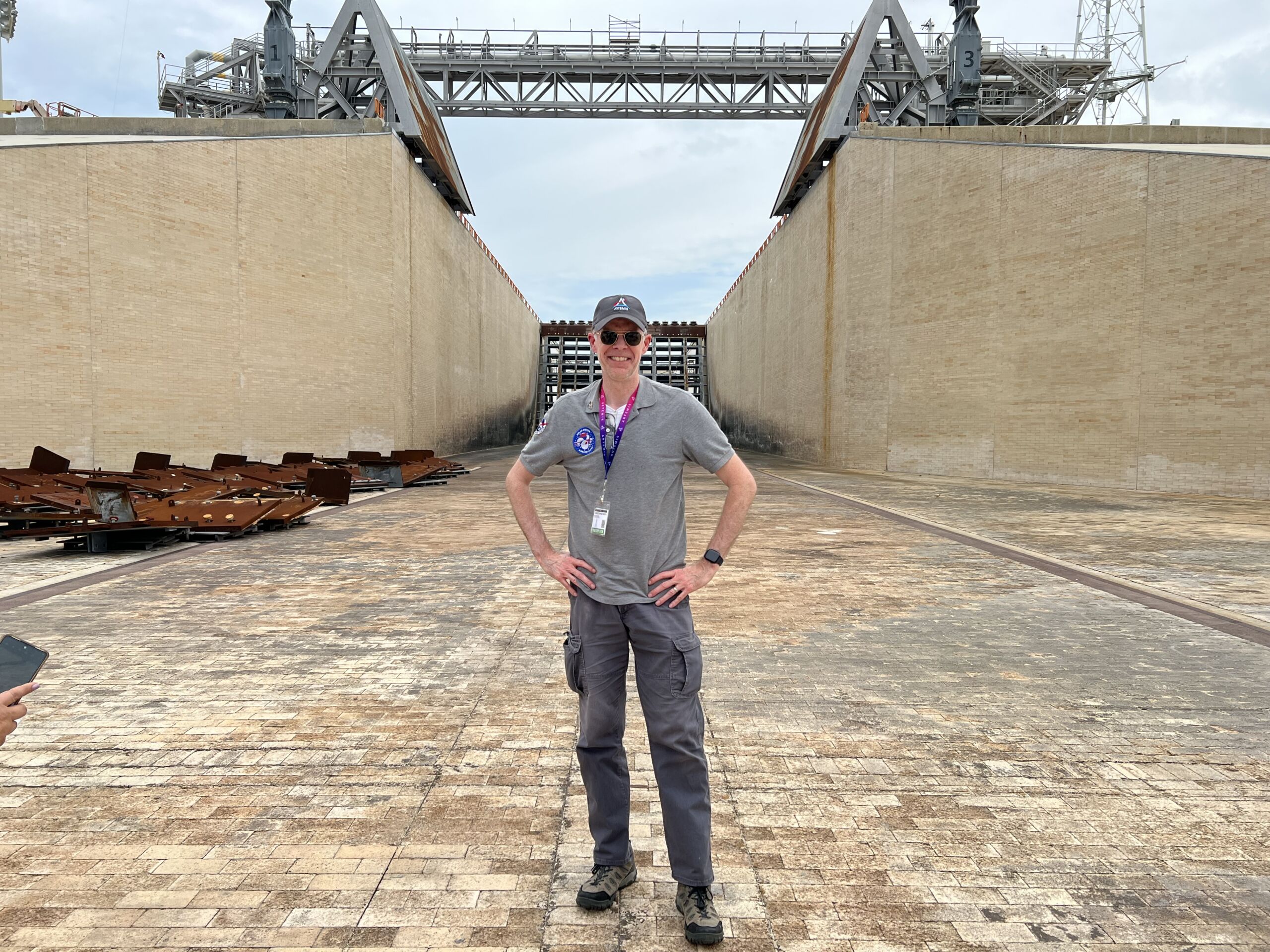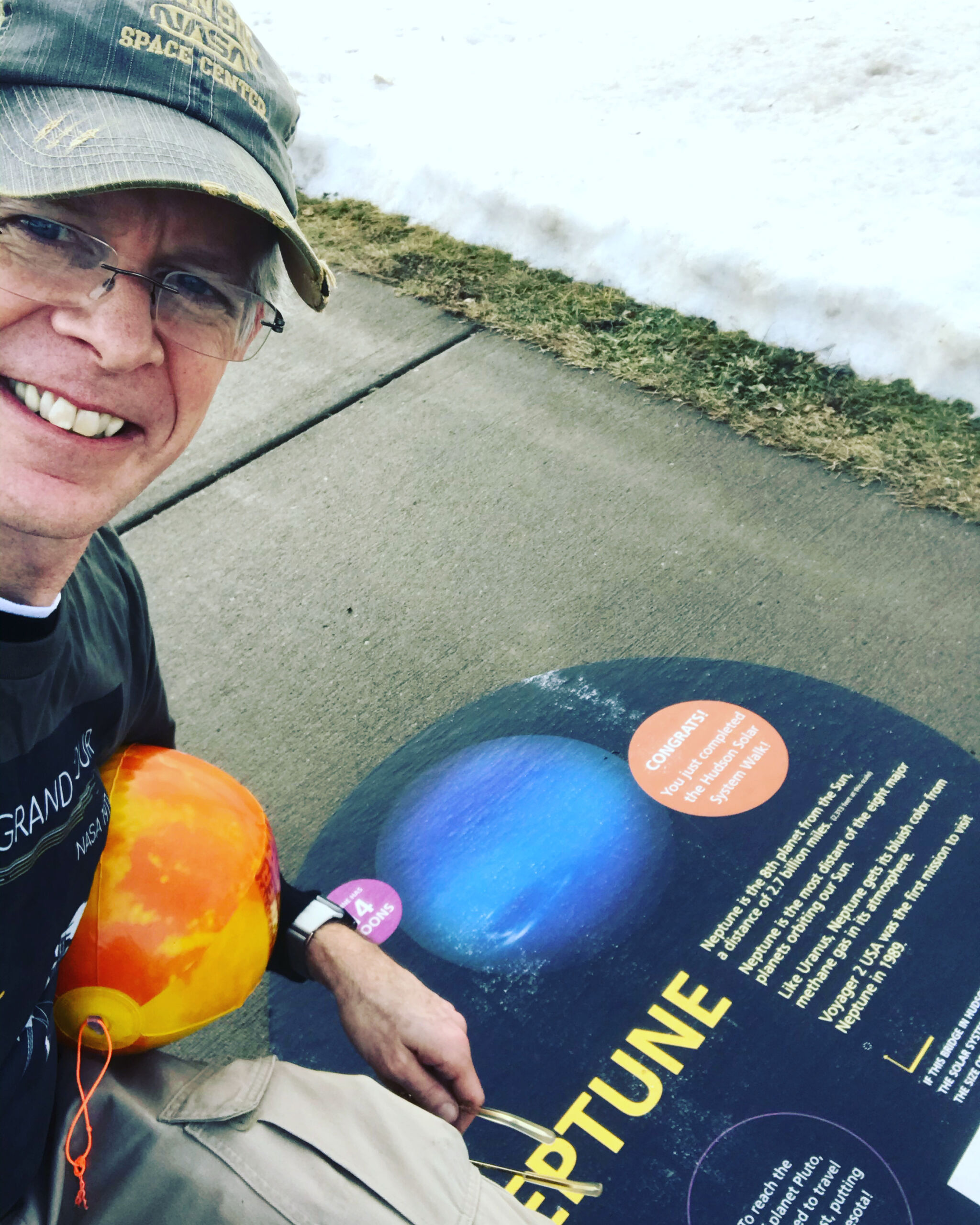By Judy Dobie, Youth Services STEAM Coordinator, South Fayette Twp Library
Facilitators – Judy Dobies -Youth Service STEAM Coordinator & Nicole Harding, Librarian – Youth Services Coordinator
The Pinwheel Galaxy is a spiral-shaped galaxy about 21 million light years away from Earth.
But on the night of February 15th, 2022, in South Fayette Township, a suburb of Pittsburgh, PA, a library room of interested elementary school-age children were busy creating and spinning their spiral-shaped galaxy pinwheels. The rotation of the children’s models resembled the Olympic ice-skating athletes in the Beijing Winter Olympics.
This activity was just the beginning of a “stellar” evening of STEM activities, which included a Zoom with Dr. Quyen Hart, a scientist from the Space Telescope Science Institute in Baltimore. Dr. Hart really engaged the children, fascinating them with information about astrophysics in the universe and connections to our world here on Earth.
Judy Dobies was inspired to host the event by attending a webinar hosted by The National Girls Collaborative Project – Girls STEAM Ahead with NASA (GSAWN) in November of 2021. The webinar shared great ideas and incredible free resources from NASA’s Universe of Learning to help develop our AstrOlympic program. More importantly, the webinar showed us how to request a Subject Matter Expert, which is how we connected with Dr. Hart.
Dr. Hart was integral to the development of our Olympic stations. We created four stations to give children the chance to explore the physics of an Olympic sport, while simultaneously learning about corresponding cosmic phenomena.
The evening began with showing the video, AstrOlympics: Introduction, on the wall for everyone to see.
Using the resources found at https://chandra.si.edu/olympics/winter, each station displayed the corresponding AstrOlympic posters and an Ipad running a loop of the corresponding AstrOlympic video demonstrating how the skills needed to succeed at high level athletics correspond to what is happening in our universe. Stations consisted of Rotation and Acceleration, Distance and Time, Speed and Time activities and a Lunar Long Jump.
The Rotation and Acceleration Station featured Nebula spin art, spiral shaped galaxy pinwheels, and color spinning ice skater wheels. The Distance and Time Station featured paper ski Jumpers which flew off water bottles when pressure was applied to the bottle, as well as balloon paper tube snowball shooters. These activities invited participants to explore gravity and other principles of physics. The children collected and recorded the distance and time data.
The Speed and Time Station was composed of an exciting icy Lego Luge experiment. Using pool noodles, plumbing tubes, and “cardboard” tracks, the children sent ice cubes with frozen Lego people down the inclines and timed their descent. Then, at the Lunar Long Jump Station, the children learned the difference between gravity on earth and the moon. To approximate lunar gravity, the children wore backpacks filled with water bottles. The Earth backpack contained 6 water bottles and the Moon backpack contained one. Both children and onlookers were amazed at how far they could jump wearing the Moon backpack. They discovered that if the Olympics were held on the Moon, athletes would be able to jump six times as high!
The highlight of the evening was Dr. Hart’s captivating Zoom PowerPoint presentation with the children and families in attendance. She did an amazing job relating space phenomena to our featured Olympic activities. After the event, we heard from multiple children that they now want to become astrophysicists, or otherwise work for NASA! She obviously made quite the impression on our youth community.
The evening concluded with each child taking home a Paper Circuit: Light Up Exploded Stars Kit to continue their experiential learning. These kits can be found at https://chandra.si.edu/make/
We are so thankful for the opportunity to work with Dr. Hart, GSAWN, and NASA’s Universe of Learning. Although our young patron’s homemade galaxy pinwheels might not last long, we hope a program like this will spark passion for learning for many years into the future.






Leave A Comment